What is PCB Assembly?
PCB assembly is the process of mounting electronic components onto a printed circuit board to create a functional electronic device. The process involves several steps, including:
- Solder paste application
- Component placement
- Reflow soldering
- Inspection and testing
Types of PCB Assembly
There are two main types of PCB assembly:
- Through-Hole Assembly (THA): Components are inserted through holes drilled in the PCB and soldered on the opposite side.
- Surface Mount Assembly (SMT): Components are placed directly onto the surface of the PCB and soldered using a reflow oven.
| Assembly Type | Advantages | Disadvantages |
|---|---|---|
| Through-Hole Assembly | – Stronger mechanical bonds – Suitable for large components |
– Slower assembly process – Larger PCB size required |
| Surface Mount Assembly | – Faster assembly process – Smaller PCB size – Higher component density |
– Weaker mechanical bonds – Requires specialized equipment |
The Need for Express PCB Assembly Services
In today’s competitive market, businesses are under constant pressure to bring new products to market quickly. Express PCB assembly services cater to this need by providing fast turnaround times without sacrificing quality. Some key benefits of express PCB assembly include:
- Reduced Time-to-Market: With express PCB assembly, businesses can receive their assembled boards in a matter of days, allowing them to bring their products to market faster.
- Cost-Effective: Express PCB assembly services often offer competitive pricing, making it an affordable option for businesses of all sizes.
- Flexibility: Many express PCB assembly providers offer a range of services, from prototype to high-volume production, allowing businesses to scale their production as needed.
Industries Benefiting from Express PCB Assembly
Express PCB assembly services cater to a wide range of industries, including:
- Consumer electronics
- Automotive
- Medical devices
- Aerospace and defense
- Industrial automation
The Express PCB Assembly Process
The express PCB assembly process follows the same basic steps as traditional PCB assembly, but with a focus on speed and efficiency. Here’s a closer look at each step:
1. PCB Design and Fabrication
Before the assembly process can begin, the PCB must be designed and fabricated. Many express PCB assembly providers offer PCB design services to help streamline the process.
2. Component Sourcing
Once the PCB design is finalized, the necessary components must be sourced. Express PCB assembly providers often have established relationships with component suppliers, ensuring quick and reliable sourcing.
3. Solder Paste Application
Solder paste is applied to the PCB using a stencil or screen printing process. The solder paste holds the components in place during the reflow process.
4. Component Placement
Components are placed onto the PCB using automated pick-and-place machines. These machines are programmed to place components with high precision and speed.
5. Reflow Soldering
The PCB is passed through a reflow oven, which melts the solder paste and creates a permanent bond between the components and the PCB.
6. Inspection and Testing
After the reflow process, the assembled PCB undergoes thorough inspection and testing to ensure that it meets quality standards and functions as intended.

Choosing an Express PCB Assembly Provider
When choosing an express PCB assembly provider, there are several key factors to consider:
- Turnaround Time: Look for a provider that offers the turnaround time you need to meet your project deadlines.
- Quality: Ensure that the provider has a proven track record of delivering high-quality assembLED PCBs.
- Capabilities: Consider the provider’s capabilities, including the types of PCBs they can assemble and the components they can source.
- Customer Support: Choose a provider that offers reliable customer support to help you through the assembly process.
Top Express PCB Assembly Providers
Here are some of the top express PCB assembly providers in the industry:
| Provider | Turnaround Time | Capabilities | Customer Support |
|---|---|---|---|
| PCBWay | 24-48 hours | Prototype to high-volume production | 24/7 customer support |
| JLCPCB | 24 hours | Prototype to mid-volume production | Online support and resources |
| SeeedStudio | 3-5 days | Prototype to low-volume production | Live chat and email support |
Frequently Asked Questions (FAQ)
- What is the minimum order quantity for express PCB assembly?
-
The minimum order quantity varies by provider but can be as low as one piece for prototype orders.
-
How long does express PCB assembly take?
-
Express PCB assembly turnaround times typically range from 24 hours to 5 days, depending on the provider and the complexity of the project.
-
Can express PCB assembly handle complex designs?
-
Yes, many express PCB assembly providers have the capabilities to handle complex designs, including Multi-layer Boards and high-density component placement.
-
What is the cost of express PCB assembly?
-
The cost of express PCB assembly varies depending on factors such as the PCB size, component count, and order quantity. Many providers offer online quoting tools to help estimate costs.
-
What file formats are required for express PCB assembly?
- Most express PCB assembly providers require Gerber files, which are industry-standard files that contain the PCB design data. Some providers may also accept other file formats, such as ODB++ or IPC-2581.
Conclusion
Express PCB assembly services have revolutionized the electronic industry, providing businesses with a fast and reliable way to bring their products to market. By understanding the express PCB assembly process and choosing the right provider, businesses can take advantage of this game-changing service to stay competitive in today’s fast-paced market.
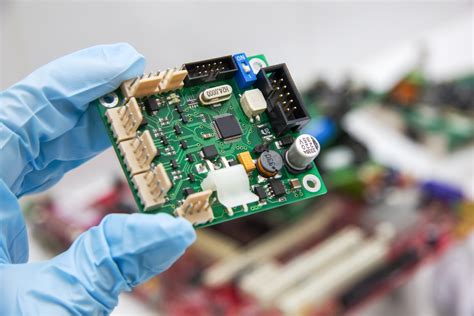
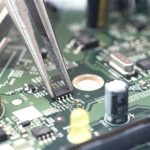
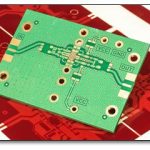
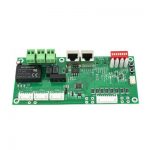
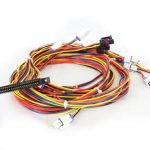
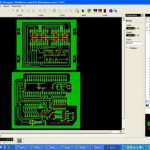
Leave a Reply